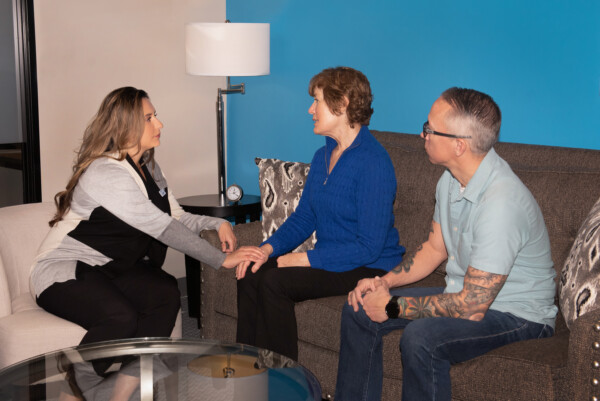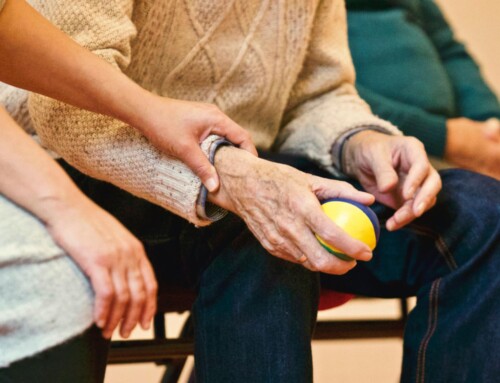
This month, we’ll be sharing a piece each week based around communication, written by our Support Group Specialist and one of our Clinical Care Coaches, Ellen Boucher. Communication plays a large part in determining the quality of our relationships with people in our lives as well as in the world around us. How well, or how poorly, we communicate truly makes a difference. For as impactful as communication is, most of us race through our days reacting to conversations and interactions rather than learning and practicing to respond in a way that adds value to each situation. Over the next few weeks, we will look at different ways to improve communication skills, especially when interacting with people living with dementia and others involved in the matter.
Steps to Improve Communication Skills
“Why did I say THAT?”
Many people share about feeling upset with themselves after a situation where they responded in a manner that was hurtful and definitely not how they wanted to come across. There is the knowledge that nothing good was accomplished and the reason for the original conversation will still have to be addressed – and this time it will most likely be approached with much more hesitation and dread. But that does not have to be the case. Let’s take some time before starting the conversation to prepare.
“What is my intention?”
Are you approaching with the intention of asking for information, giving information, creating a connection, or something else? How can you express yourself with the simplest phrasing to be understood and using values the other person can respond to? What would you prefer the outcome to be, and how can you prepare yourself for different outcomes? When do you acknowledge that this is not the right time to continue your efforts, and how do you gracefully retreat from the conversation or redirect the conversation? How would you like both of you to feel when the conversation is over?
Planning ahead for what you want to accomplish as well as considering how to respond to different ways the conversation could go can help you to be more effective and stay patient.
“How aware am I?”
How are you feeling – did you sleep well, what is your stress level, have you eaten recently and drank water, have you done some deep breathing and stretches? A significant part of successful communication is being aware of how you feel when you begin the conversation. Investing in how well we take care of ourselves brings a more competent person to the interaction.
Now think about the person you will be speaking with and what factors may impact their interaction with you. What is their skill set to begin with and what other daily life issues may hinder a successful understanding of what you are trying to communicate? Is there anything you can do to alleviate something that could create a stumbling block?
“Once the conversation is started…”
Reminding yourself of your intention – especially about how you want both of you to feel when the conversation is ended – is very important for remaining calm and focused throughout the exchange. It’s also valuable to remain aware of how you are feeling and how the other person appears to be feeling while you are interacting. Doing these small check-ins can help you to monitor and maintain your composure from the beginning to the end of the conversation. Like anything else in life, this takes time and practice, but your efforts can ultimately ease your stress level and improve the effectiveness of your communication skills.
If you would like to discuss this or practice specific situations, you can speak with one of our Clinical Care Coaches (Spanish speakers available) by calling us at 858.492.4400. Also check out our free education classes, support groups, social activities, & more.
Communication Series
PART 2: Verbal and Non-Verbal Communication
PART 3: Using Active Listening to Improve Communication Skills
PART 4: How to Practice Using Communication Strategies
Sign up for our email newsletter or follow our social media pages for updates.
Written by Ellen Boucher, BSW




